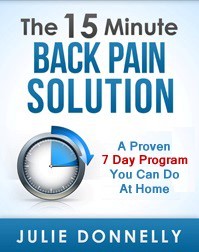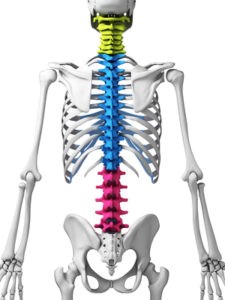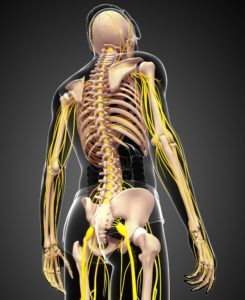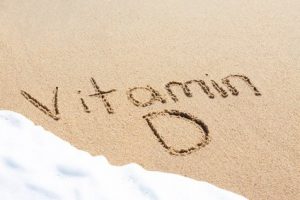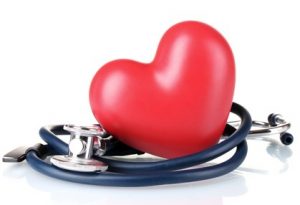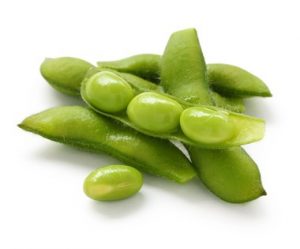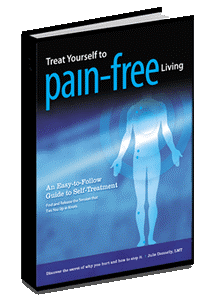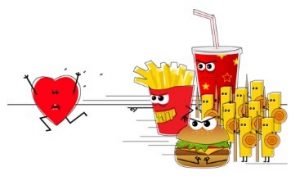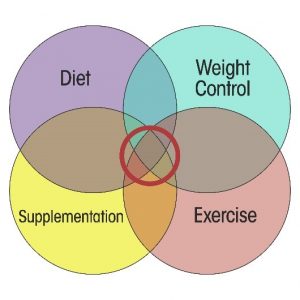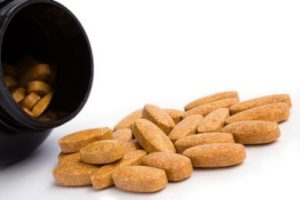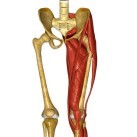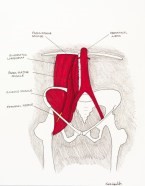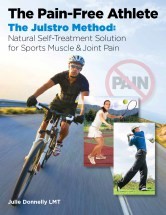Reducing Your Risk Of Developing Aggressive Prostate Cancer
Author: Dr. Stephen Chaney
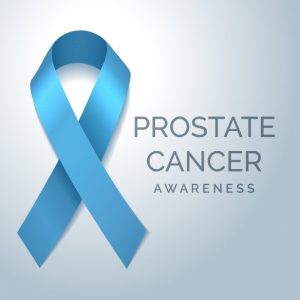 Is there a best diet to prevent prostate cancer?
Is there a best diet to prevent prostate cancer?
Prostate cancer is like a tale of two entirely different cancers. For most men, prostate cancer is both inevitable and relatively benign. For example, in one study scientists performed a histological examination of the prostate in men who had died of other causes. They reported detecting prostate cancer in 28% of men who died at age 30-39 and 75% of men who died at age 85. That has lead to the oft-quoted saying: “Most men die with prostate cancer rather than from prostate cancer.”
However, in a small percentage of cases, the prostate cancer turns aggressive and becomes a killer. And, there is some evidence that the incidence of aggressive prostate cancer is increasing. It is this aggressive form of prostate cancer that we want to avoid.
The prevention of aggressive prostate cancer has been controversial. The clinical studies have been conflicting. In part, that is because many of the previous studies did not distinguish between benign and aggressive prostate cancer.
More recent studies have focused specifically on the most aggressive forms of prostate cancer. These studies have provided greater clarity. I will summarize the American Cancer Society’s recommendations of foods to eat and foods to avoid below.
However, while the American Cancer Society’s recommendations are helpful, it is more useful to focus on the overall diet rather than individual foods. The current study (A. Castello et al, The Journal Of Urology, 199: 430-437, 2018) does just that. It compares the effect of the Western Diet, a Prudent Diet, and the Mediterranean diet on the risk of developing aggressive prostate cancer.
What is the best diet to prevent prostate cancer?
How Was The Study Done?
 This study was part of the Multicase-Controlled Study On Common Tumors in Spain (MCC-Spain) program. MCC-Spain was conducted in 7 Spanish provinces between September 2008 and December 2013. From this larger population base the authors selected 754 subjects with histologically confirmed prostate cancer and 1,277 matched controls. The ages of men included in this study ranged from 38 to 85 years old.
This study was part of the Multicase-Controlled Study On Common Tumors in Spain (MCC-Spain) program. MCC-Spain was conducted in 7 Spanish provinces between September 2008 and December 2013. From this larger population base the authors selected 754 subjects with histologically confirmed prostate cancer and 1,277 matched controls. The ages of men included in this study ranged from 38 to 85 years old.
All the participants in this study participated in an extensive computerized questionnaire to gather information on sociodemographic and lifestyle factors, personal and family medical history, height and weight. The questionnaire included a detailed food frequency questionnaire to assess their diet over the previous year. These questionnaires were administered by trained personnel in face-to-face interviews to assure accuracy.
The authors used a program they had developed previously to analyze the food frequency information and calculate the subject’s adherence to 3 different diets. These diets were:
- The Western Diet: This diet is characterized by a high intake of high-fat dairy products, refined grains, processed and red meats, caloric drinks, sweets, convenience foods and sauces, and by a low intake of low-fat dairy products, whole grains, vegetables and fruits.
- The Prudent Diet: This diet is characterized by low-fat dairy products, whole grains, vegetables, fruits, and juices. This is essentially a lacto-ovo-vegetarian diet, which has been shown to reduce the risk of some cancers.
- The Mediterranean Diet: This diet is characterized by a high intake of fish, boiled potatoes, vegetables, legumes, fruits, whole grains, vegetable oil and olives.
The study compared the adherence to each of these diets to the risk of developing an aggressive form of prostate cancer. Two independent assays were used to identify aggressive tumors.
Best Diet To Prevent Prostate Cancer
 The results of the study were as follows:
The results of the study were as follows:
- High adherence to the Western diet tended to increase the risk of aggressive prostate cancer. However, the results were not statistically significant, possibly due to the small number of participants with high adherence to a Western diet in this population.
- High adherence to the Prudent diet had no effect on aggressive prostate cancer risk, although it does decrease the risk of some cancers.
- High adherence to the Mediterranean diet decreased the risk of aggressive prostate cancer between 32% and 51% depending on the assay used to identify aggressive tumors.
While the authors preferred to focus on whole diets rather than individual foods, they pointed out that the biggest differences between the Mediterranean diet and the Prudent diet were increased consumption of fish and olives and decreased consumption of dairy. They considered the difference in fish consumption to be the most significant difference.
The authors cited previous studies showing that while fish consumption had no effect on prostate cancer incidence, it did significantly decrease prostate cancer mortality. This suggests that fish and fish oil may reduce the progression of benign prostate tumors into more aggressive forms of prostate cancer.
The authors concluded: “If other researchers confirm these results, the promotion of the Mediterranean dietary pattern might be an efficient way of reducing the risk of developing advanced prostate cancer. Dietary recommendations should consider whole patterns instead of focusing on individual foods.”
Of the 3 diets above, the Mediterranean Diet certainly seems to be the best diet to prevent prostate cancer.
What Does The American Cancer Society Say About Diet And Prostate Cancer?
 Based on the best available data, the American Cancer Society has made some very specific recommendations for reducing the risk of prostate cancer. They are:
Based on the best available data, the American Cancer Society has made some very specific recommendations for reducing the risk of prostate cancer. They are:
#1: Control Weight.
#2: Be More Active.
#3: Eat Healthy. By that they mean:
Choose foods and drinks in amounts that help you get to and maintain a healthy weight.
- Read food labels to become more aware of portion sizes and calories. Be aware that “low-fat” or “non-fat” does not necessarily mean “low-calorie.”
- Eat smaller portions when eating high-calorie foods.
- Choose vegetables, whole fruit, legumes such as peas and beans, and other low-calorie foods instead of calorie-dense foods such as French fries, potato chips and other chips, ice cream, donuts, and other sweets.
- Limit your intake of sugar-sweetened beverages such as soft drinks, sports drinks, and fruit-flavored drinks.
- When you eat away from home, be especially mindful to choose food low in calories, fat, and added sugar, and avoid eating large portion sizes.
Limit how much processed meat and red meat you eat.
- Minimize your intake of processed meats such as bacon, sausage, lunch meats, and hot dogs.
- Choose fish, poultry, or beans instead of red meat (beef, pork, and lamb).
Eat at least 2½ cups of vegetables and fruits each day.
- Include vegetables and fruits at every meal and snack.
- Eat a variety of vegetables and fruits each day.
- Emphasize whole fruits and vegetables; choose 100% juice if you drink vegetable or fruit juices.
- Limit your use of creamy sauces, dressings, and dips with fruits and vegetables.
Choose whole grains instead of refined grain products.
- Choose whole-grain breads, pasta, and cereals (such as barley and oats) instead of breads, cereals, and pasta made from refined grains, and brown rice instead of white rice.
- Limit your intake of refined carbohydrate foods, including pastries, candy, sugar-sweetened breakfast cereals, and other high-sugar foods.
While these recommendations focus on foods rather than diets, they sound a lot like the Mediterranean diet. The only thing that is missing from the American Cancer Society recommendations is olives and olive oil.
Final Thoughts
The American Cancer Society and this study agree that red and processed meats should be minimized in our diet. There is evidence from previous studies that both increase the risk of developing aggressive prostate cancer. The American Cancer Society replaces red and processed meat with fish and poultry. The Mediterranean diet replaces them with fish and legumes. I would be leery of any diet that places a heavy emphasis on red meat consumption.
Don’t think these dietary recommendations are just important for men. In a previous study the same authors reported that adherence to a Western diet increased the risk of developing breast cancer and adherence to the Mediterranean diet reduced risk. In addition, previous studies suggest that red meat consumption also increases the risk of breast cancer.
The Bottom Line:
A recent study looked at the effect of adherence to a Western Diet, a Prudent Diet, and a Mediterranean diet on the risk of developing aggressive prostate cancer. The study found:
- High adherence to the Western diet tended to increase the risk of aggressive prostate cancer.
- High adherence to the Prudent diet had no effect on aggressive prostate cancer risk.
- High adherence to the Mediterranean diet decrease the risk of aggressive prostate cancer between 32% and 51% depending on the assay used to identify aggressive tumors.
- Based on their study and previous studies, the authors suggested that fish and fish oil may reduce the progression of benign prostate tumors into more aggressive forms of prostate cancer.
The authors concluded: “If other researchers confirm these results, the promotion of the Mediterranean dietary pattern might be an efficient way of reducing the risk of developing advanced prostate cancer. Dietary recommendations should consider whole patterns instead of focusing on individual foods.”
The authors have also reported similar results for the effects of these 3 diets on the risk of developing breast cancer in women.
For the American Cancer Society recommendations on reducing prostate cancer risk and other details, read the article above:
These statements have not been evaluated by the Food and Drug Administration. This information is not intended to diagnose, treat, cure or prevent any disease.


